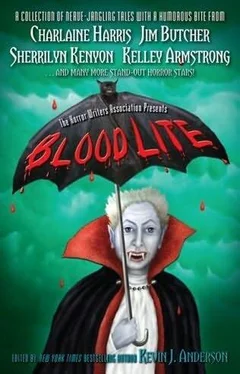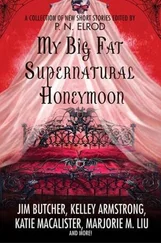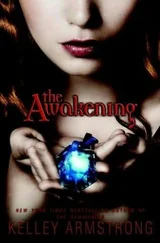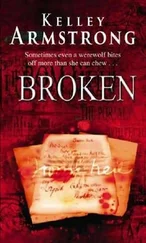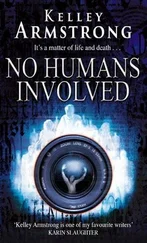I destroy the bell by stomping on it with my foot. It is too much responsibility for one man.
I spend some time down in Human Resources, explaining my actions. I am written up for unprofessional conduct and told that it will negatively impact my raise, but that's okay. I had succumbed to the sin of pride, and my punishment is just.
And I learned an important lesson. Love conquers all... but in a pinch, you can fake it.
In stock car racing, a "dead hand" is a jack-type device with which you holdup heavy car parts (like a transmission) while you unbolt them.
I don't hold with talking to dead people. Of course, that's just a personal preference of mine. It ain't against the rules of NASCAR, you understand. And it's about the only thing that ain't.
Will they let you adjust the spoiler a couple of degrees for less air resistance? Naw.
Can you make the roll cage bars out of aluminum instead of steel to lighten the chassis? Not if they catch you.
How about putting a little nitrous oxide in the gasoline to give your car an instant boost in horsepower? Don't even think about it.
Cheating in stock-car racing is a time-honored tradition, an endless game of Whac-A-Mole. You find some little way to give your team an edge, and then NASCAR catches you at it, and the next day they add a new no-no to the rule book. So then you go looking for some other way to get ahead, and that works for a while, and then they catch you again, and so it goes.
I was on a team that was so far up the creek in engine sludge that we couldn't even afford to pay the fines they'd hit us with if they caught us cheating. We were dead last in points, dead men racing, dead in the water as far as being competitive in the sport. That's what got me thinking about dead people, I guess.
Trampas-LeFay used to be a name to conjure with on the NASCAR circuit, but that was back in the day, when drivers still knew their way around an engine, and when most of the guys out there racing had day jobs instead of fan clubs. Back then a race team could be located anywhere, like the Wood Brothers' shop in Stuart, Virginia, or in the garage in back of Ralph Earnhardt's little white house in Kannapolis. Back then Trampas-LeFay was a shoestring operation out of the Tennessee hills, with a lot of moonshining know-how going into their engine building, but they held their own for the better part of two decades, and they won enough races to turn a profit.
Times changed, though. Big money and national media exposure changed the sport beyond recognition, so now we were in an era of West Coast pretty-boy drivers and rocket-science engineering, all propelled by the almighty dollar.
But Trampas-LeFay had hardly changed at all. We were still the same little one-car team in the Tennesseehills with a cheesy regional sponsor and some local good ol' boys working the race shop. But now we were trying to go head-to-head against corporate racing giants who had twenty-million-dollar budgets from Fortune 500 companies, all of them located within hailing distance of Mooresville, the epicenter of NASCAR, where they had access to the wind tunnels, the state-of-the-art engineers, and the Charlotte media machine.
We hadn't won a race in a year of Sundays, but that doesn't mean we don't know our stuff. It just means we're stubborn and maybe a bit behind the times, which in this sport is the fast lane to oblivion.
For one thing, all the winning teams field three or four cars every week. We had one. So while the big boys got three times as much testing and research from pooling their multicar information, we had one car and one set of answers. We also lacked the twenty-million-dollar sponsor that paid for all those engineers and testing equipment that gave them the edge. A three-hour race is often won by just a tenth of a second, and it takes a few million dollars to buy you that tenth of a second. The way things stood now, Trampas-LeFay didn't have enough money to buy the stopwatch, much less the tenth of a second to win.
I had been the team's chief mechanic a long time—since Earnhardt Sr.'s rookie year—and I still knew a few tricks of the trade, but it would have taken a miracle to compete with those million-dollar golden boys down in Mooresville.
"I don't see us finishing out the year," J. P. Trampas told me that afternoon at the shop. He was a tall, gaunt fellow who looked older and grayer than he should have, but watching a hundred grand a week spiral down the drain will do that to a man, I reckon. His grandfather had been the original Trampas in racing, and I knew that it hurt J.P. to watch the family business sink into oblivion. He had to be wondering if there was something he could have done differently to have prevented that. His grandfather had been a tough old moonshiner who parlayed his expertise in outrunning the law into pure driving genius in NASCAR, and he had been smart enough to get out of the car early and start building an empire. J.P. was a good fellow, but he was two generations down from shirtsleeve money. He had too much culture and not enough grit in his craw for a cutthroat business like racing, and he had spent his youth in a fancy college, not in the race shop. It was hard to blame him, though, for being what he was raised to be. He was doing his honest best—which was part of the problem. The honest part. There are only two kinds of racers: cheaters and losers. "Well, times is hard," I said.
"Indeed they are." He reached for a rag to wipe the sweat off his face, saw the gleam of motor oil on it, and put it down again. "It used to be, almost every car qualified to make a race, which would have guaranteed us a few thousand dollars participation money anyhow, but now with fifty six teams trying out each week for only forty-three slots—well, we're just throwing good money after bad. We spend thousands to get to the track; we fail to qualify by a few tenths of a second; and we then come home with nothing. Half the time we don't even get to race. What sponsor is going to pay us a hundred K a week when we don't even make the show?"
I shook my head sadly. He'd get no argument from me there. Facts is facts.
J.P.'s frown deepened into a furrow. "We're a week or so from laying people off, Rattler. I hate to say that, but I don't know what else we can do."
"We could make the race for once," I said, and he managed to laugh and still sound sad at the same time.
"Make the race," he said. "Well, that would take a miracle."
A miracle would have come in handy, but I don't hold with accepting charity from anybody—not even from folks wearing halos—so I didn't figure on going to the nearest church, lighting a candle, and asking for a handout. I figured if there were miracles needed, I'd best see about devising one on my own.
Now, my people have been in these hills a long time, and we don't run to saints and such, but I do have a streak of Cherokee blood in my veins wider than the Holston River, and I had learned a thing or two besides engine mechanics from those bootlegging, full-blood great-uncles of mine. I can do a deal of things that don't have anything to do with racing: heal wounds with a white quartz stone; talk the fire out of a burn; find water with a fork of willow branch. But I had never tried anything as big and scary as what I proposed to do now. This was messing with serious magic, and I didn't do it lightly.
No point in me trying to tell you the particulars of it. Like my granddaddy used to say, "You can't explain what you don't know any more than you can come back from where you ain't been." And likely it only worked because of my bloodlines, anyhow. But in the light of the full moon I gathered the plants I needed from a little mountain meadow near my people's healing lake, and then I , took them along to the funeral home in Kingsport.
Читать дальше
